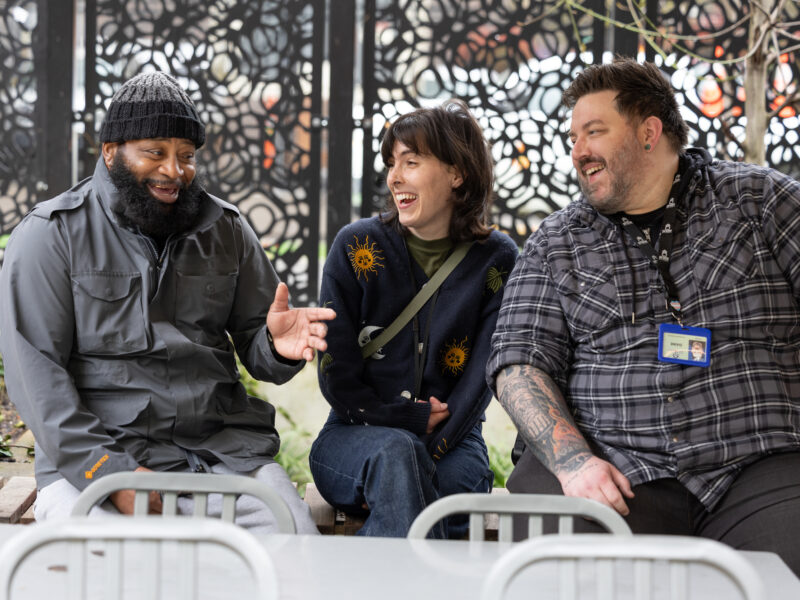John's Story
'This place saved my life.'
With help from the Behavioral Health Resource Center, John leaves homelessness for housing.
Holding keys to an apartment of his own, John was glowing over what he had accomplished.
“My goal is to have a place in 60 days,” John had said in February 2025. And by early March, the 55-year-old had moved into a one-bedroom apartment of his own.
John’s path to housing was made possible thanks to the services provided at the Multnomah County Behavioral Health Resource Center, which provides a range of support services for people experiencing homelessness who also have symptoms of mental health and substance use disorders. The center is funded in part by the Supportive Housing Services Measure.
John finds help at Behavioral Health Resource Center
John said he had never experienced homelessness until arriving in Portland in late fall 2024, returning to the city where he was born and raised after spending 20 years in Chicago.
“As soon as I came home, I had a mental health situation and I relapsed,” he said.
He came to the Behavioral Health Resource Center in December 2024 with the help of Cascadia Health’s Project Respond team, which provides crisis support to people experiencing behavioral health challenges.
In addition to offering drop-in services on its first floor, the Behavioral Health Resource Center offers shelter for people experiencing homelessness.
On the third floor, Do Good Multnomah manages 30 temporary shelter beds with a 30-day average stay, plus three crisis beds.
On the fourth floor, Do Good Multnomah’s Bridge Housing Program provides 19 beds with an average stay of 90 days that helps serve as a transition to permanent housing.
Support from Do Good Multnomah helps John find housing
John stayed six days in one of the center’s crisis beds before moving through the temporary shelter and then the Bridge Housing Program.
Before John moved up to the fourth floor, Do Good Multnomah’s peer-led staff helped him replace critical documents — including identification and Social Security cards — and assigned him a case manager.
“I was skeptical at first,” John said. “But I realized all the resources to make me a better person are right here.”
John got support from Do Good Multnomah throughout his housing search. They steered him through the application process and even made sure he had furniture and furnishings.
“The resources are amazing,” John said of the Behavioral Health Resource Center. “I believe this place saved my life.”




